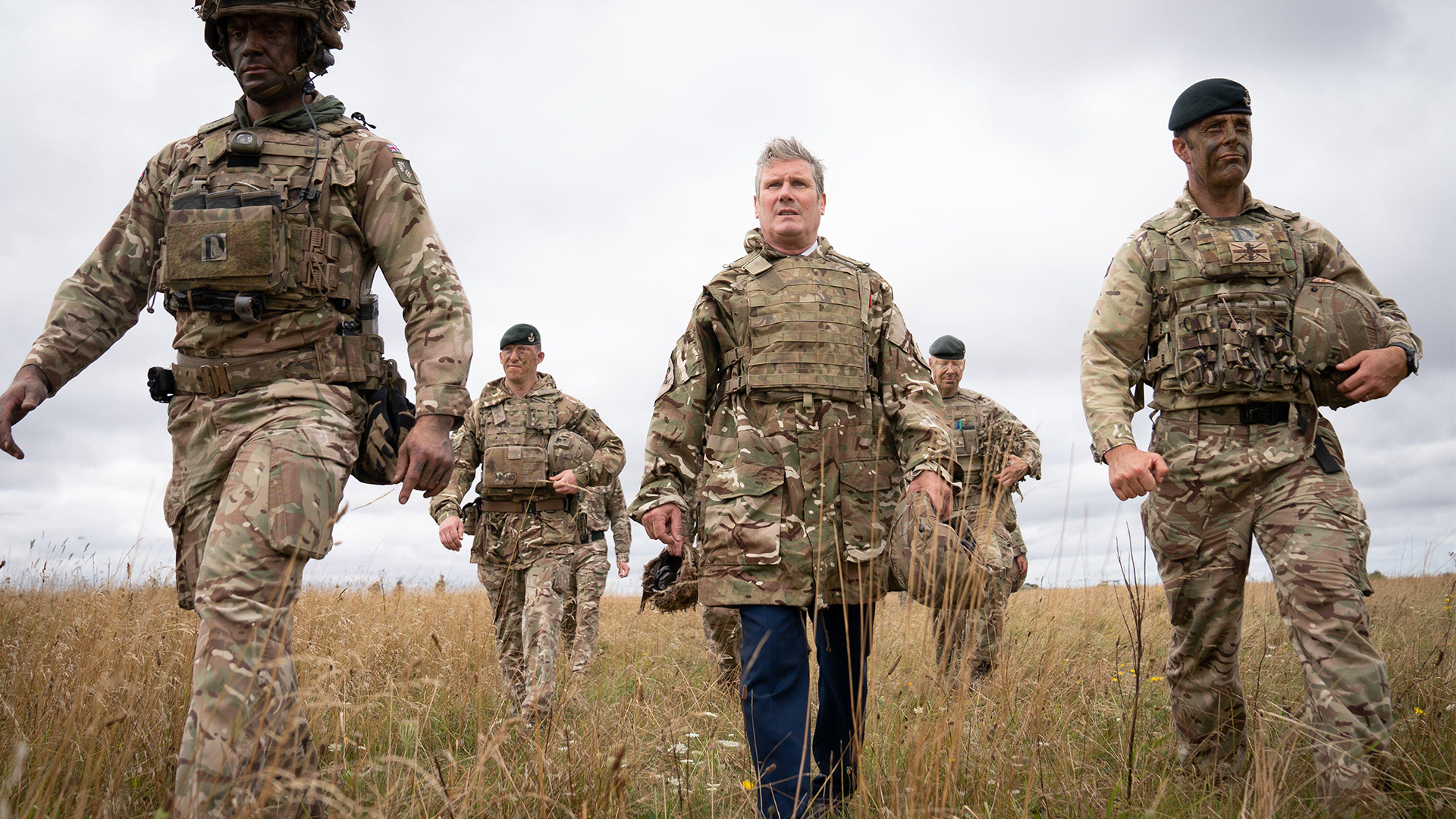
What we can expect from the new Labour government when it comes to defence

Prime Minister Sir Keir Starmer led the Labour Party to a landslide election win, ending 14 years of Conservative government.
During Sir Keir's debut appearance in Downing Street after he was officially asked by the King to form a new government, he spoke of the need for a national "reset" and highlighted the "challenges of an insecure world".
"We did it," Sir Keir said in a victory speech. "Change begins now. We said we would end the chaos, and we will. We said we would turn the page, and we have. Today we start the next chapter, begin the work of change, the mission of national renewal and start to rebuild our country."
- Dozens of military veterans and reservists win seats in the General Election
- Aldershot: Home of the British Army votes Labour for first time in history
- Starmer has his hand on the red button now and he must show his resolve
Now Labour has an overwhelming majority, what will the new government do for the military?
Forces News looks back at its manifesto for a reminder.
Defence Review and 2.5% GDP pledge
Labour criticised the Tories for hollowing out the Armed Forces while geopolitical tensions have risen in the last 14 years.
It pledged in its manifesto to boost defence spending to 2.5% of gross domestic product.
The party also said it would launch a Strategic Defence Review to assess the threats faced and the capabilities needed to address them.
Nato
"As the party that founded Nato, we maintain our unshakeable commitment to the alliance," the Labour manifesto read.
Labour said it would apply a 'Nato test' to defence programmes to ensure they met the requirements of the alliance in full.
The manifesto also outlined the party's commitment to the UK's nuclear deterrent as "absolute", adding that it was a vital safeguard to both the UK and Nato.

Ukraine
The Labour manifesto said it would meet the challenge posed by Vladimir Putin's invasion of Ukraine by strengthening the Armed Forces and protecting national security.
While this might seem vague, the manifesto also said the party would remain "steadfast" in its military, financial, diplomatic and political support for Ukraine.
President Putin would be held to account for his illegal war in Ukraine, with Labour working with allies to seize and re-purpose frozen Russian state assets to support Ukraine.
Labour also promised to play a leading role in Ukraine's accession to Nato, providing a clear path for the country to join the alliance.
Veterans
Labour said it would enhance support for Armed Forces communities by fully enacting the Armed Forces Covenant and appointing an independent Armed Forces Commissioner to improve service life.
Veterans will have access to comprehensive mental health, employment and housing support.
Additionally, Labour said it would eliminate visa fees for non-UK veterans who have served for four or more years and their dependants.
Terrorism
Terrorism remains a significant threat, and Labour said it would introduce Martyn’s Law to enhance security at public events and venues.
Martyn's Law, named after Martyn Hett, who was killed in the Manchester Arena bombing in 2017, mandates public venues in the UK to conduct risk assessments and implement appropriate security measures to prevent terrorist attacks.
It emphasises staff training, collaboration with authorities and public communication to enhance overall safety and preparedness.
It said it would update counter-extremism rules, including online measures, to prevent radicalisation.
Labour also pledged to ensure the police and intelligence services had the necessary powers and resources to protect the British people from terrorism and hostile espionage.
Aukus and China
Under Labour, it said the UK would remain fully committed to Aukus, the trilateral security partnership with Australia and the United States.
It said a Labour government would audit the UK's bilateral relationship with China to better understand the challenges and opportunities that the country poses.
Bringing a long-term and strategic approach to managing relations with China, "we will co-operate where we can, compete where we need to and challenge where we must," the manifesto read.
Labour also said Britain was a tolerant and compassionate country, with a proud tradition of welcoming people fleeing persecution and abuse.
"We will stand with and support members of the Hong Kong community who have relocated to the UK," the manifesto added.
Defence industry
Labour vowed to bolster Britain's security by forging a solid partnership with the domestic defence industry.
Their defence industrial strategy aims to align security with economic priorities, ensuring a robust defence sector and resilient supply chains, especially in steel.
By fostering long-term business-government collaborations, Labour plans to drive innovation and strengthen UK supply chains.
Labour said it would prioritise UK businesses for defence investments and overhaul procurement to cut waste.
They will support the defence industry in capitalising on export opportunities while maintaining a strict arms export regime that upholds international law.
Additionally, Labour said it would establish a military strategic headquarters and appoint a national armaments director to enhance leadership and accountability in defence operations.









